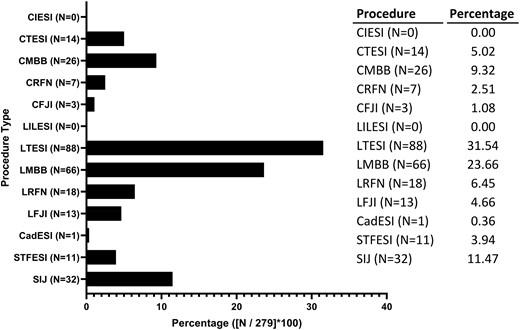Currently practice in ASC where, by policy, all diabetics get a FS glucose check and generally canceled if FS >250.
Moving to outpatient hospital procedure suite.
How many of you are routinely checking FS glucose in diabetics?
Are you only checking in the setting of steroid injection?
What's your cutoff number to cancel the case?
Literature indicates that rise in BG is about 100 and lasts 2-3 days.
Moving to outpatient hospital procedure suite.
How many of you are routinely checking FS glucose in diabetics?
Are you only checking in the setting of steroid injection?
What's your cutoff number to cancel the case?
Literature indicates that rise in BG is about 100 and lasts 2-3 days.

